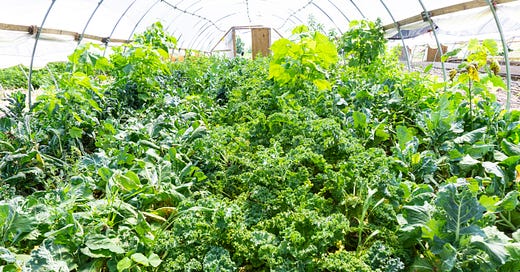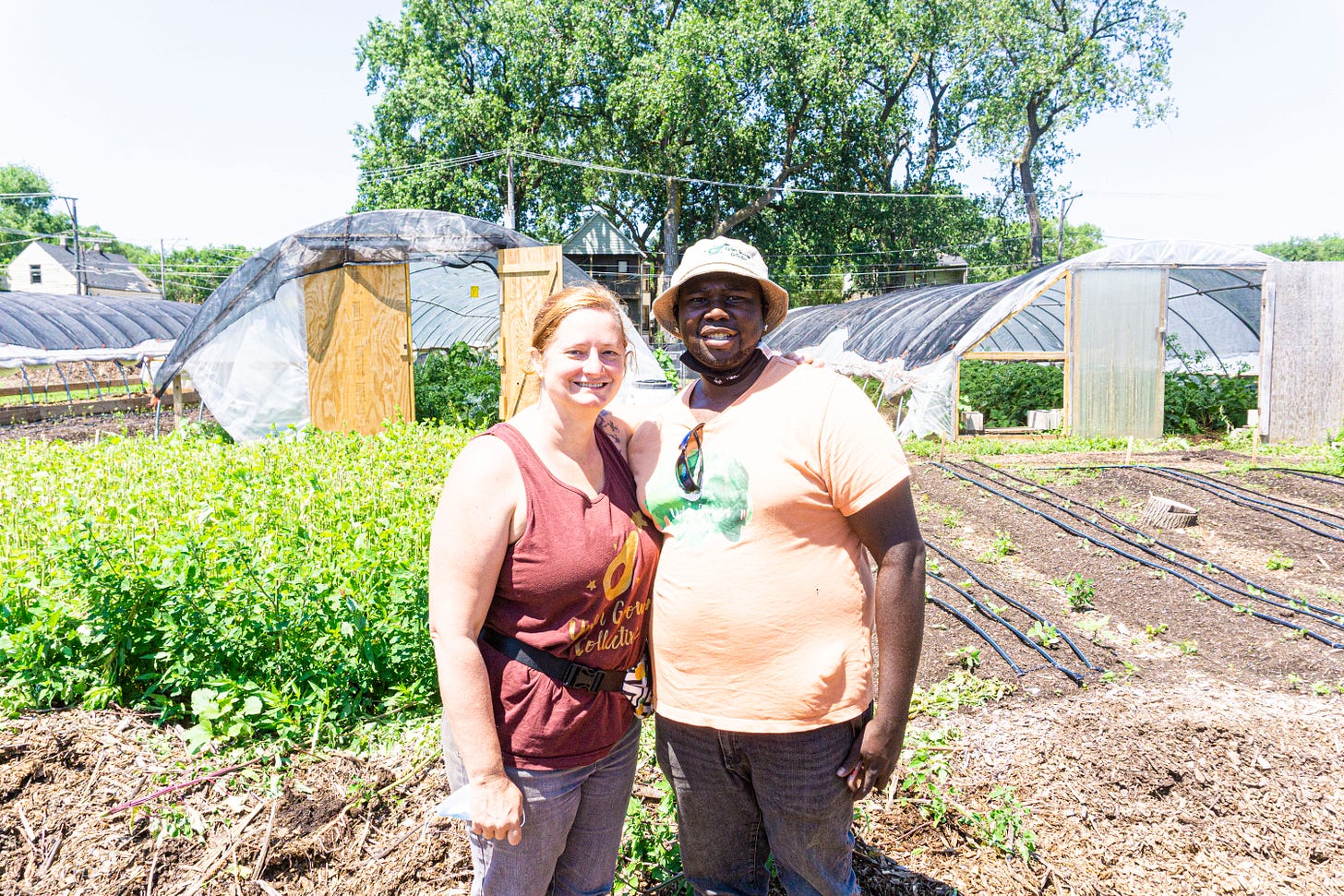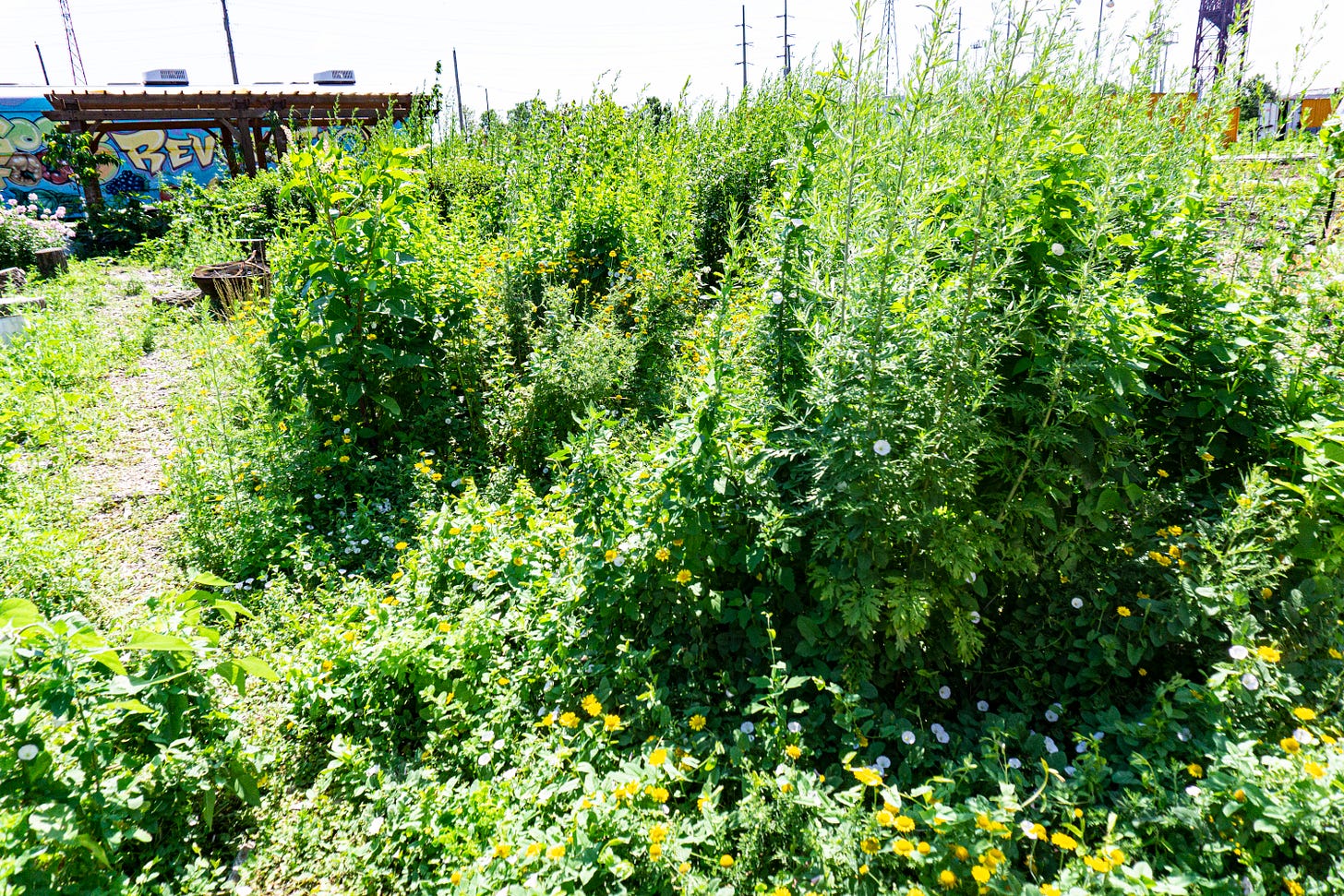Urban Growers Collective's Inclusive Innovation
Chicago nonprofit promotes urban farming, food and land access, growth
Shopping at farmers markets is a fun and rewarding way to support local farmers, but it is far from all of the important work of the local food community.
The mission of those who advocate for a better and more local food system in the Chicago region includes making it more equitable, so people across demographic and economic boundaries have access to healthy food, and access to the land and tools they need to grow their own food.
It also includes providing job training in farming, food production and food distribution, especially for residents of under-resourced communities — where deeply rooted troubles can only be addressed by restoring jobs, opportunity and hope that have been lacking since the decline of heavy industry in Chicago.
Urban Growers Collective hits so many of the touchpoints of the local food community. It is a nonprofit organization that embodies all of that mission. This successor to Growing Power Chicago was founded in 2017 by principals Erika Allen and Laurell Sims, leading advocates for urban agriculture and food equity (both are also deeply involved with the Chicago Food Policy Action Council).
The organization runs eight farms in Chicago; the largest of these, the 14-acre South Chicago Farm (9000 S. Mackinaw) symbolizes the generational changes in Chicago’s economy, as it is located just across Lake Shore Drive from the former site of U.S. Steel’s massive South Works.
The Collective’s Fresh Moves bus is a mobile produce store that brings their nutritious, locally grown, affordable food to residents of several communities, some of which are classified as food deserts (the buses accept Link payments and double them up to $25 a week).
Urban Growers Collective also provides job and business skills training; runs a Youth Corps that provides paid summer jobs for high school age students and ignites their interest in how food is grown; provides plots of land on its South Chicago Farm for apprentice farmers; and enables local residents to grow their own food in community gardens there and on its Jackson Park Farm.
What may be the organization’s crown jewel is the Green ERA facility under construction in the Auburn Gresham community on Chicago’s South Side. The centerpiece is an anaerobic digester that will convert tons of food waste a day into renewable energy and compost, the nutrient-rich soil supplement. Upon completion, it will provide a much-needed economic engine, jobs (including for formerly incarcerated individuals and others with employability issues)… and a new home for the Urban Growers Collective’s flagship farm.
Local Food Forum on July 1 took a tour of the South Chicago Farm with Laurell Sims and Malcolm Evans, who at age 28 is the farm manager. Malcolm was 10 years old when he first started helping out at a Growing Power farm adjacent to the then-Cabrini Green housing project, became a fulltime employee after he graduated from high school, and became farm manager in 2018.
From Community Service to Lifeline
The farm consists of outdoor plots growing a variety of vegetables, fruits and herbs (with recently increased production of medicinal plants); year-round hoop houses that generate summer crops such as tomatoes, which give away to cold-hardy greens such as kale and spinach during the winter; the apprentice farm and community garden; and separate pens for a small herd of nanny and billy goats (a chicken house and run is in the works).
Most of the Urban Growers Collective's produce was already providing a service to communities with food access issues when the COVID-19 pandemic hit in March 2020. Its farms then became a lifeline, working with other organizations to box and distribute produce to individuals and families at a time of widespread food shortage.
“For us, it forced us to do some of the things we’d been talking about but said we don’t have time yet. We just dived in,” Laurell said. “We had to shut down our Fresh Moves program because no one could go anywhere, but folks still needed food. We did it very quickly... and it made us really dive into the collective piece.” She continued, “We had those contacts, we had those partnerships already, we were able to just get food out and deploy it, which was great.”
Malcolm said, “Everything we put in the ground was gone already. We were trying to make sure there was enough food to give to folks who needed it. We were harvesting pounds and pounds and pounds of food. In February I seeded for the pandemic, so I did double everything.”
And while the threat of COVID has diminished and Chicago has been officially reopened since June 11, food insecurity remains high. The Fresh Moves bus is back in operation and to provide additional assistance, Urban Growers Collective is providing $10 to each customer on top of the $25 Link match.
Pandemic shortages have also provided impetus for increased food sovereignty, a term that refers to providing individuals and communities with greater opportunity to grow food for themselves. “Just seeing that run of grocery stores really spoke to people,” Laurell said. “It was really scary to go to a grocery store that’s usually abundant, and there’s nothing there. Learning how to grow their own, storing, having those resources is important so we’re not just taking everything for granted, everything will work right for the rest of our lives.”
This has in turn inspired increased interest in community gardens. Prior to COVID, Urban Growers Collective hosted about 10 people at its community gardens, a number that jumped to more than 50. “It made a lot of people realize this ain’t no joke,” Malcolm said. “People close to us were passing away... The community piece got really pushed up, people wanted to really know how to grow food. We’ve been doing it for years, we’ve been trying to bring this to folks’ attention... Everybody needs to understand food and know where it comes from.”
Urban Growers Collective is operating the South Chicago Farm under a lease agreement with the Chicago Park District, which owns the property. Laurell said the Collective continues to work to address access to land for urban farmers. “Land access is the number one barrier to farming. It’s expensive, especially Black and Brown farmers who are starting. They have no access to loans, just from systemic racism,” she said.
The kind of creative re-use being done at the South Chicago Farm also addresses a key environmental issue, which is removing pollutants from former industrial sites known as brownfields and putting them back into productive use. It is a painstaking process, though, that requires considerable financing from public or other sources. Laurell said:
“What we would normally do is come in with about three feet of wood chips and then bring in compost. But as soon as we said we wanted it, [the Park District] got a grant to remediate the entire site. It took about three years... They scooped out about three feet of all of the soils here.... They put a barrier down and came back with three feet of soil. We still do not grow in that soil, we put compost in on top because it’s not nutrient dense.”
Local Food Forum welcomes Urban Growers Collective to our Seasons of Change farmer series. Follow-up articles about its mission-driven activities are coming soon.












Thanks for the great profile of the Urban Growers Collective. I appreciate all the hard work they are doing and the food they are growing for the people of the community. The medicinal plants project sounds promising too. I wish them the very best. Thanks again.